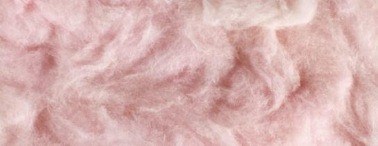
Are you planning to insulate your home but don’t know where to begin? Insulation Contractors at TrustedPros.ca can help you decide which insulation will best suit your home according to your budget, climate and specific needs. Not only does insulation in your home act as a barrier against heat transfer, but it also lowers heating and cooling costs and improves comfort.
Here are some common types of insulation used for basement walls:
1. Fiberglass Insulation
Fiberglass Insulation is one of the most popular types of insulation. It is a type of thermal insulation material used to reduce heat transfer. It is made from fine glass fibers.
Pros
Cost-effective, readily available, easy to install.
Cons
It may absorb moisture if not properly sealed.
2. Spray Foam Insulation
Spray Foam insulation is an insulation material applied as a liquid and then expands into a foam. There are two main types of Spray Foam.
1. Open-Cell Spray Foam
It is less dense and has a spongy texture. It is an excellent sound insulator.
2. Closed-Cell Spray Foam
It is denser and has a rigid texture. It also adds structural strength to the building.
Pros
Excellent insulation properties provide an effective moisture barrier.
Cons
Higher initial costs may require professional installation.
3. Rigid Foam Insulation
Rigid foam insulation is a type of insulation material that comes in board-like panels or sheets. This insulation comes in various types.
1. Expanded Polystyrene (EPS)
Lightweight, low R-value, cost-effective.
2. Extruded Polystyrene (XPS)
Denser, more moisture resistant, higher R-value, expensive.
3. Polyisocyanurate (Polyiso)
Rigid Foam, high R-value, excellent thermal performance.
Pros
Provides high R-value, resistance to moisture, and versatility.
Cons
Higher upfront costs may require careful installation for optimal effectiveness.
4. Mineral Wool (Rockwool) Insulation
Mineral wool is insulation material made from natural rocks or minerals.
Pros
Excellent thermal insulation, fire-resistant, moisture-resistant, sound absorption, does not promote the growth of fungi or bacteria, and is environmentally friendly.
Cons
Can be heavier and more difficult to handle during installation.
5. Cellulose Insulation
Cellulose Insulation is a type of thermal insulation made from recycled paper or other fibrous plant materials, primarily cellulose fibers.
Pros
Good thermal performance, sound absorption, blown-in application, moisture resistance, cost-effectiveness, and environment-friendly.
Cons
It may settle over time and require careful installation.
Hiring a contractor through TrustedPros ensures that you work with a professional who adheres to the quality and durability of the insulation installation. Post your job today, and TrustedPros will find you the best contractors near you.
Posted by: TrustedPros





